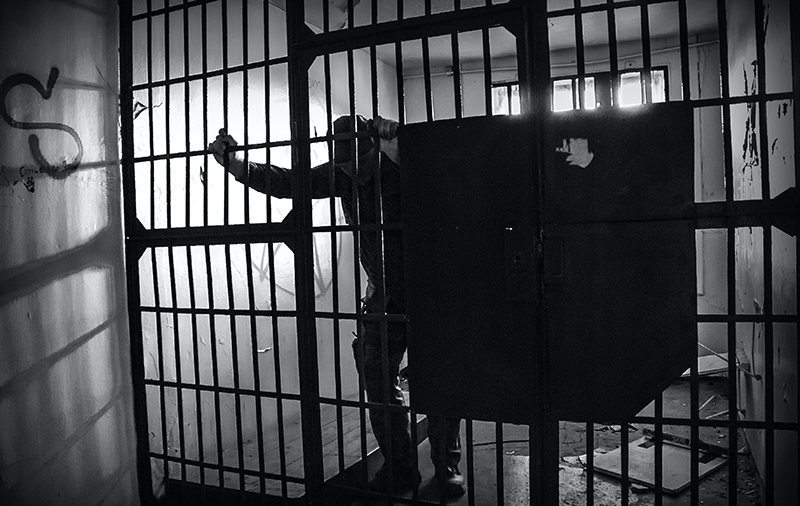How a ‘perfect storm’ killed an LA philanthropist
BY STEVE SMITH
The murder of philanthropist Jaqueline Avant, the wife of famed music producer (“The Godfather of Black Music”) Clarence Avant, sent shock waves throughout Los Angeles society. Her death, during a home-invasion robbery on Dec. 1, 2021, not only shattered the tranquility of ritzy Beverly Hills, but it spotlighted the connection between the city’s notoriously progressive politics and a recent crime wave that has set Angelenos on edge.
Police arrested Avant’s killer, Aariel Maynor, the same evening after he committed yet another home-invasion robbery, during which he mistakenly shot himself in the foot with the murder weapon. His clumsiness and brutality aside, Maynor propelled himself onto the front pages of local media mainly because he boasted – on a recorded prison phone call – that “I’m gonna get out of jail. I’ll probably do like 20 … 25, get out, you feel me?”
He seemed to know that the city’s progressive prosecutor, George Gascón, wouldn’t seek the death penalty given that under his leadership the district attorney’s office refused to ever seek that penalty. By the way, Maynor already had benefited from one of the criminal-justice reforms advocated by Gascón and the state’s Democratic political establishment, Proposition 57. The 2016 voter-approved measure made it easier for felons to qualify for parole.
Like a perfect storm, the murder of Jaqueline Avant was the result of a rare combination of failed leadership and misbegotten state and local policies.
As fear grips Los Angeles and other California cities, the question is whether its wake might upend the current Democratic political consensus about crime and punishment. It already has led to the recall of San Francisco’s progressive district attorney, Chesa Boudin. First, a little history of the current parole situation.
After a 16-year hiatus from politics in 1999, once and future Gov. Jerry Brown was elected mayor of Oakland. After three years at the helm of one of California’s most violent cities, Brown made the trip to Sacramento to testify before the Little Hoover Commission, the state’s independent watchdog agency. “Little Hoover” was taking up the issue of prison sentencing reform.
As Brown began testifying, he laid out his vision. In the 1970s, he understood that Black Californians in particular had been the victims of sentencing and parole inequality at the hands of a system tinged by racism. Simply put, Blacks were serving longer terms at higher rates than others both as a result of their sentence and the likelihood that their stay in prison would be longer because of a reduced likelihood they would be paroled.
To address that inequity, he implemented the policy known today as “determinate sentencing.” Convicted offenders would serve a fixed term that would be defined as either a mitigated, mid-term or aggravated sentence. By taking out some of the subjectivity, the new policy created a more racially equitable situation. In 1990, California’s Black prison population was 4.2 times that of whites and by 2015 that number had dropped to 2.1 times that of white offenders.
The remaining problem, as Brown saw it, was the high rate of recidivism, or repeat offenders – a problem that persists in California’s justice system today. As Mayor Brown saw it, there were two problems: prisons were failing at rehabilitation and prisoners were failing to rehabilitate.



He declared that a group of hard-core offenders was “pillaging” Oakland. He also offered a solution. Believing that inmates weren’t rehabilitating because there was no incentive to do so, he advocated that California abandon determinate sentencing and return to a system known as “indeterminate sentencing.” The length of a sentence would therefore be determined, to a large degree by the inmate themselves, who would have to convince a parole board that they had been rehabilitated.
Brown also suggested to the commission that California make new and robust commitments to offering substantive and effective mental health, addiction and educational programs to fix a broken system. He also increased parole opportunities following the Supreme Court’s Plata decision mandating dramatic reductions in the prison population. He approached the Legislature with Assembly Bill 109, known as realignment. AB 109 was two pronged. First, it created a category of inmates known as “Triple Nons” – non-violent, non-serious and non-sexual offenders.
Triple Nons would be eligible for almost immediate release on parole – however the parole terms were non-revokable, which meant it wasn’t really parole at all. Roughly, 75,000 Triple Nons became as free as any citizen not convicted of a felony. The second part of AB 109 involved realignment, which pushed felons convicted of non-violent crimes into county jail rather than state prison.
The prison population dropped to levels acceptable to federal monitors enforcing Plata. For progressives, this dramatic reduction in incarceration rates wasn’t enough. They qualified Proposition 57 for the ballot – and it passed with nearly 65 percent of the vote. It softened California’s three-strikes law, which passed in 1994 amid the state’s previous crime wave.
Until Prop. 57’s passage, three-strikes suspects were allowed two violent felonies before they could be prosecuted for a 25-to-life sentence for any third felony. Even though only 8,100 of California’s roughly 175,000 prisoners were “lifers” under the three-strikes law, Prop. 57 was sold to the public as a way to promote justice following stories about lifers whose third strikes were for minor crimes (such as stealing a piece of pizza). Prop 57 freed those serving third strikes for non-violent third felonies.
Proposition 57 had other dubious elements. It redefines violent crimes and allows anyone serving a third strike for a violent crime that’s been re-defined as non-violent to petition for release. Offenders whose sentence was enhanced for egregious conduct will be eligible for release at the same time as those who did not engage in the egregious conduct. It made it much tougher for DAs to prosecute violent juveniles as adults.
This brings us to Aariel Maynor. He is just 30 years old, but has a criminal history spanning 10 years. One can safely say that he is a career criminal. His adult criminal history begins in 2010 with a grand theft conviction and continues to 2013, when he was arrested for domestic violence and a subsequent robbery resulting in a five-year prison sentence. In 2018, he was convicted of yet another robbery. His own Facebook page was replete with his own colorful take on his criminal history.
Bottom line: He was released on Sept. 1, 2021, under the favorable terms now granted him by the voters. Without Prop, 57, Maynor would still be in prison and Jaqueline Avant would be alive. On May 13, 2021, 41 of California’s district attorneys opposed what amounted to the CDCR’s administrative reduction in sentences. One who didn’t was George Gascón, a leader in the progressive effort to remake the California criminal justice system.
He is an advocate for de-criminalization and is actively reducing the sentences of violent teens convicted as adults. He even issued a directive to his prosecutors banning the use of sentencing enhancements in all criminal prosecutions. Under intense criticism, Gascón has backed away from some of these policies. But go back to Maynor’s prison call. The career criminal figured that the new prosecutor’s policies would lead to a lenient sentence.
Fortunately, Maynor was wrong. He was sentenced in April to a 150-year term – complete with sentencing enhancements. The question is whether California’s progressive establishment will admit that they were wrong, too.
Steve Smith is a senior fellow in urban studies at the Pacific Research Institute.

